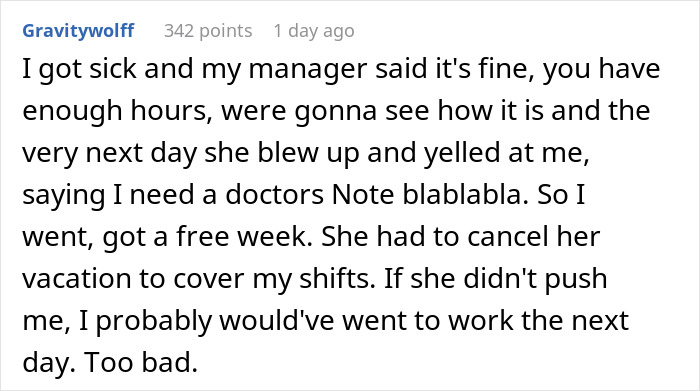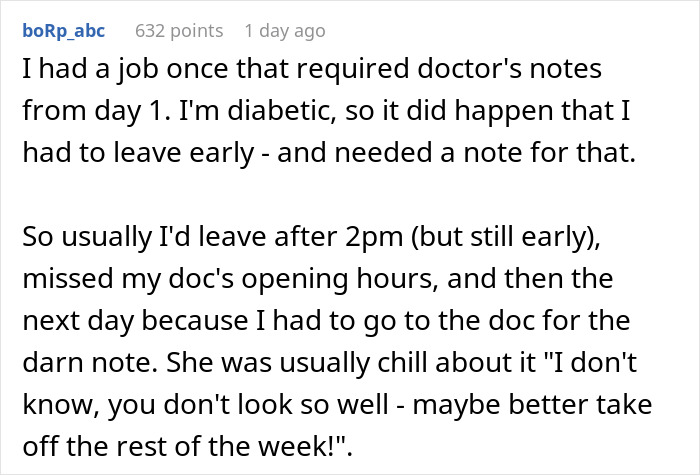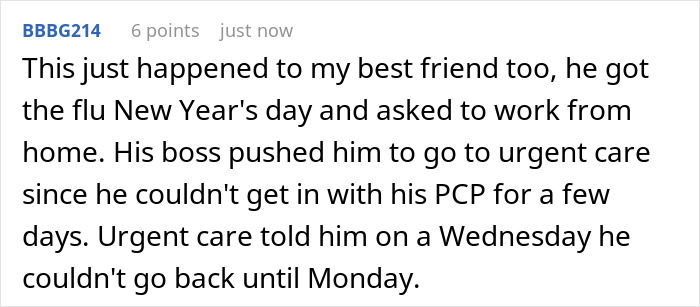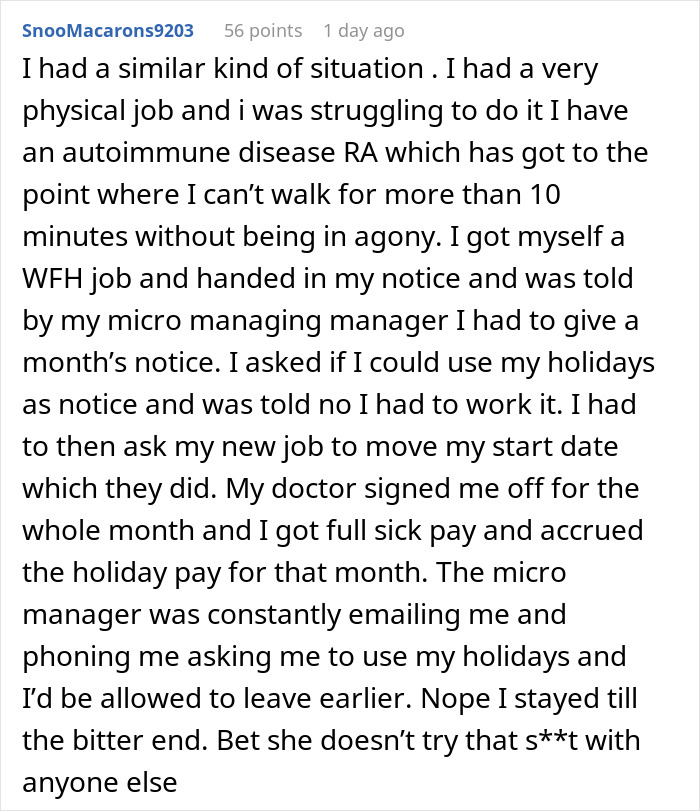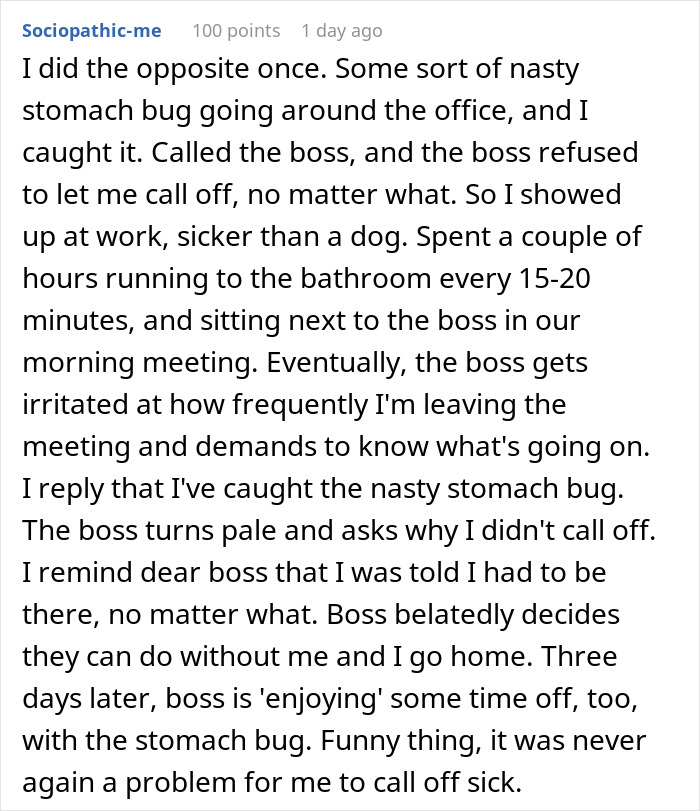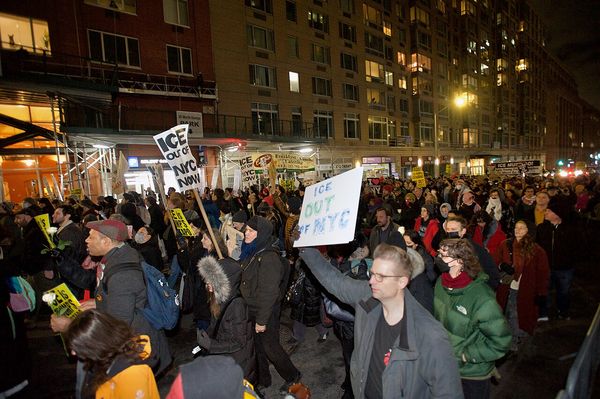More and more people are working from home ever since the pandemic. But companies continue to push for workers to come back to offices. According to Resume Builder, 90% of companies will return to the office by the end of 2024. However, experts say that the concept of a five-day workweek in the office is ‘dead.’ They recommend embracing the hybrid model and letting employees work at least one day a week from home.
The OP in this story wanted to stay home for a mandatory office day because they felt sick. But the new manager, perhaps in an attempt to flex their newly-gained authority, demanded a note from a doctor. The OP complied and demonstrated how we can handle these kinds of nonsensical requests from management.
Employees need a doctor’s note so they can stay home and rest

Image credits: Pavel Danilyuk / pexels (not the actual photo)
However, this manager thought the OP was faking their illness and just didn’t want to come to the office
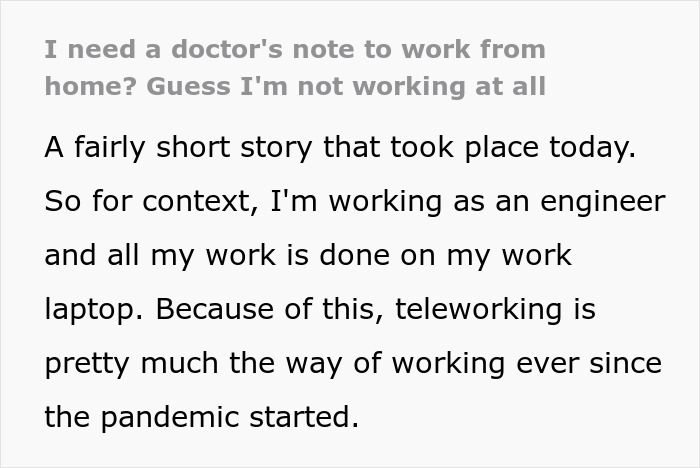
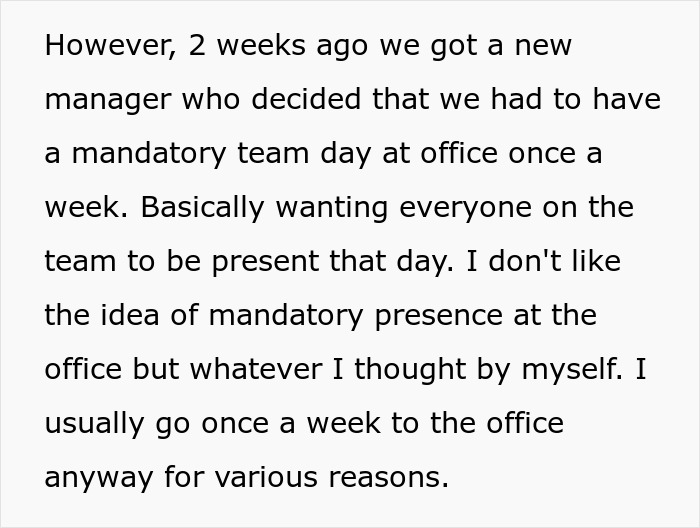
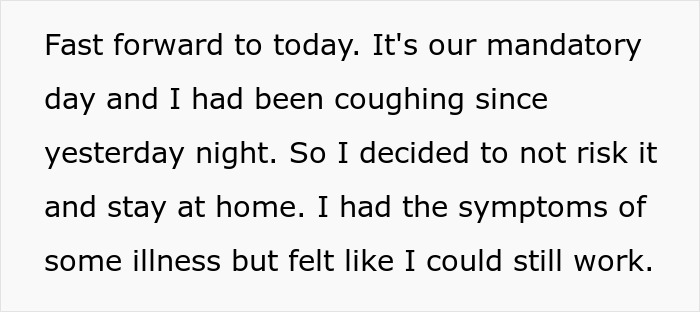

Image credits: Polina Tankilevitch / pexels (not the actual photo)
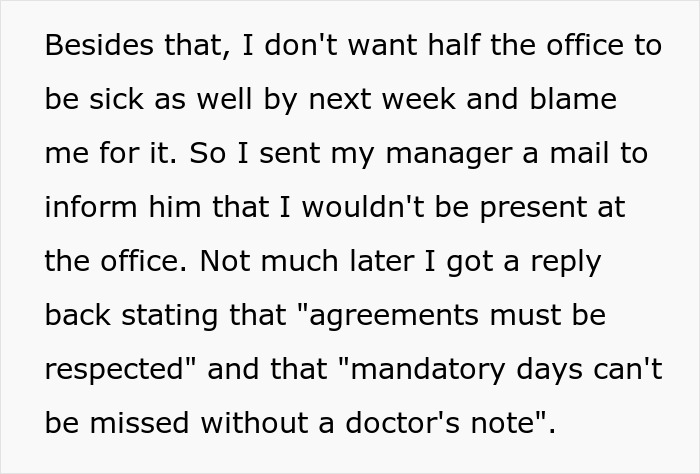
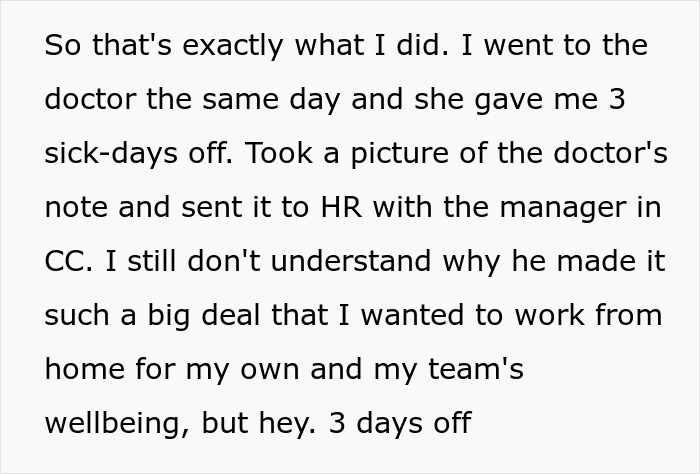
Image source: Particular_Bug0
It’s not worth it coming in to work when you’re sick
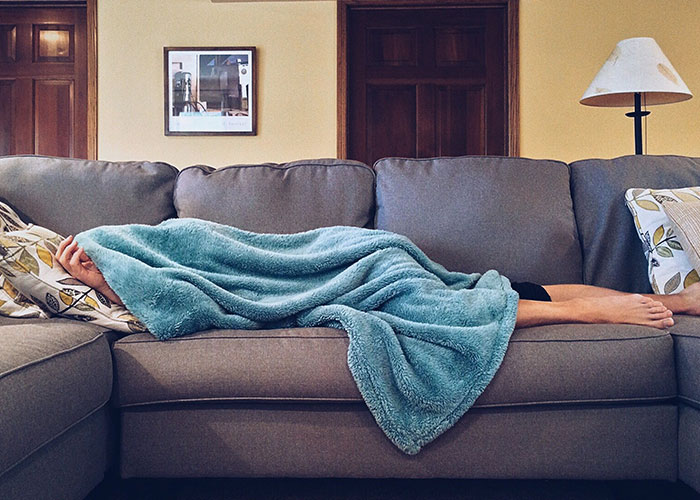
Image credits: Pixabay / pexels (not the actual photo)
When you’re working a hybrid model, the line between working from home and being sick can sometimes blur. You might think: “I’m too sick to go to the office, but I feel fine enough to work.” In Britain, for example, the employee absence rate is one of the lowest globally. However, employment experts advise against trying to play the hero. They say that a sick day should be a sick day.
Alison Collins, an academic of organizational health and well-being, says that when sick employees stay at home, it’s a win-win. “It’s not on their sick record, and the organization knows you’re doing less but [is] glad to get some work,” she told The Guardian.
She says that going into the office sick may come back to bite you in the rear later. “If people have gone to work while sick, they may be at an increased risk of sickness absence in the future, so they are deferring their sickness absence.”
We should not come to work sick either, for the benefit of our mental health. A Danish study found that sickness presenteeism might contribute to people who were not depressed developing depression. “This study suggests that working while ill may also be a significant risk factor for the development of depression,” the researchers concluded.
When employees come to the office sick, it’s a risk for employers, too

Image credits: fauxels / pexels (not the actual photo)
It’s hard to believe managers would want their workers on the job when they’re feeling ill. First, they certainly cannot perform as well as when they’re healthy and might not do as much work. By not getting enough rest, the employee prolongs their illness, resulting in a loss of productivity for the company.
Employment lawyer Brittany Taylor told Financial Post that employees should find out what would happen if they got sick at the time of hiring. People should check what the company policy for working from home when sick is. Some employers might expect sick workers to come into the office; others might be more lenient and allow more flexibility.
“Ultimately, unless [an employee’s] employment agreement gives them the right to work from home at their discretion, the employer is entitled to set the rules of the workplace, including when remote work is going to be permitted. So understanding those rules as an employee is key,” Taylor explained. It seems that the experts would side with the OP on this one.
People still work from home even when they’re sick because they’d otherwise feel guilty

Image credits: Karolina Grabowska / pexels (not the actual photo)
Researchers Prisca Brosi and Fabiola H. Gerpott at the Kühne Logistics University in Hamburg, Germany, have found one reason why we sometimes feel so conflicted about taking a sick day off.
“We do find that people tend to work from home despite being ill because they expect that they will actually feel less guilty,” Gerpott told Business Insider. “They think about it and wonder, ‘Oh, if I will continue working, maybe then I can take a little bit of work away from my colleagues, then they don’t have to do it.'”
Another big part of the problem is the ‘always-hustling’ mentality. People nowadays tend to tie their value to being productive. But such a philosophy only turns out to be toxic in the long run. Kim Dawson, director of employee engagement, told Flex Jobs that people sometimes feel pressured by the culture of their company.
“It’s no secret that many offices have cultures that encourage the ‘always-on’ mentality—meaning that employees at these organizations can find it difficult to ask for time off when they’re sick and are often encouraged to work from home instead.”
Many commenters stood on the OP’s side



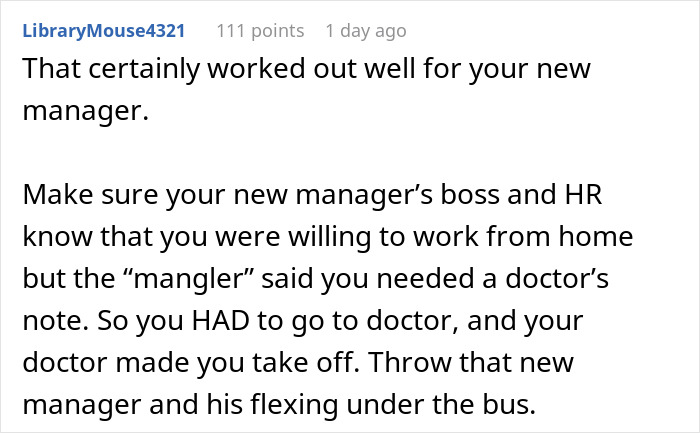
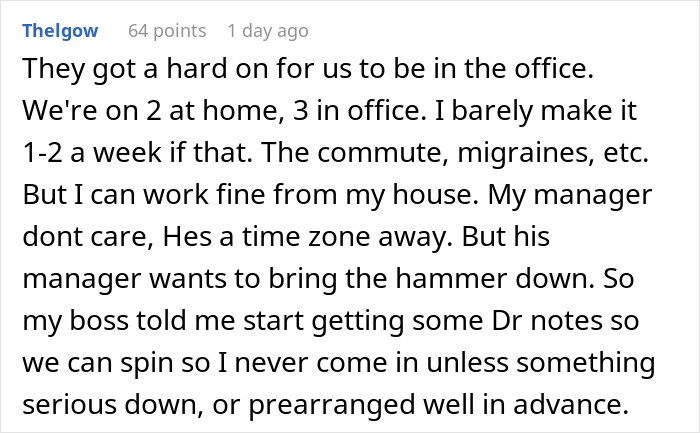
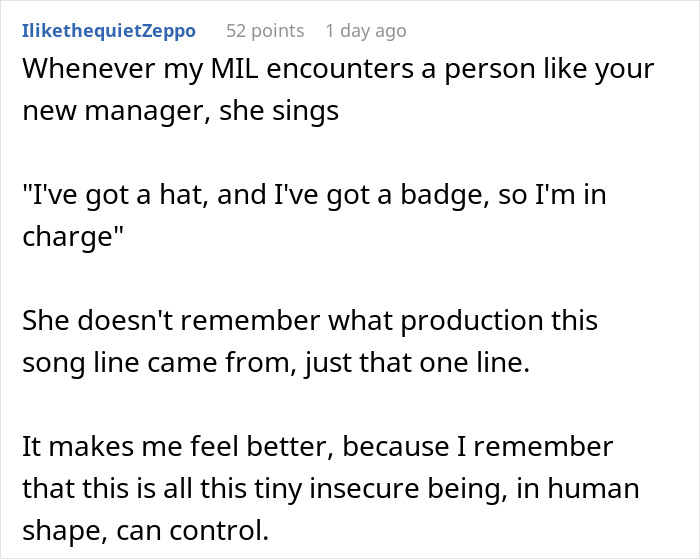


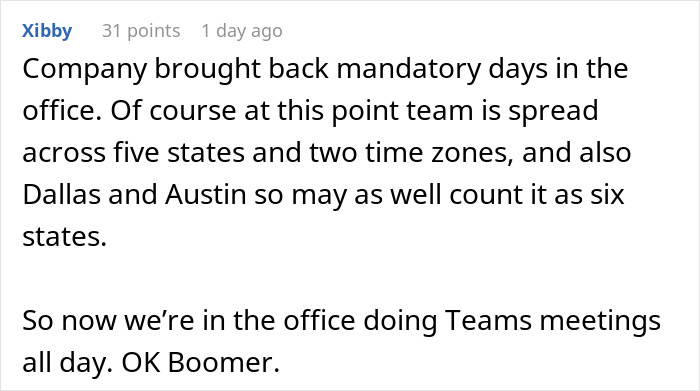

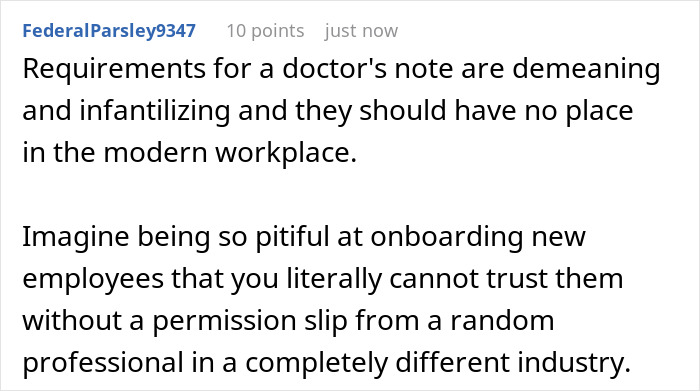




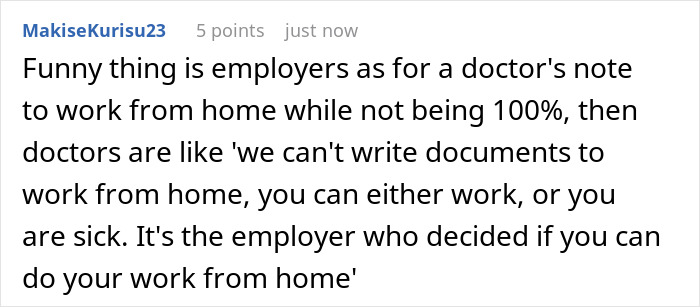
Some even shared their own stories with micromanaging bosses
